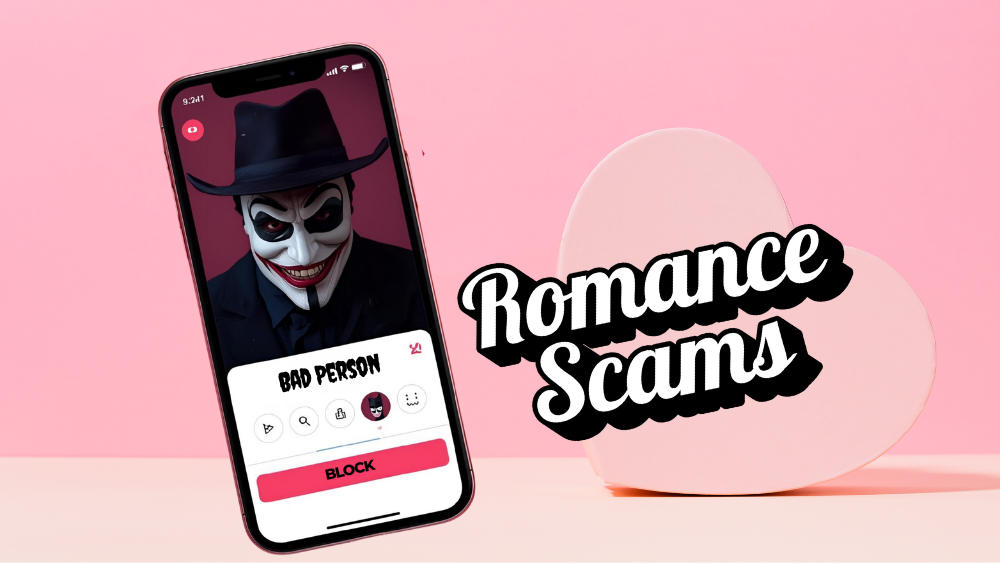A growing plague in the age of online dating and dating apps is the phenomenon known as romance scams or romantic fraud. Countless people, both men and women, fall victim to these schemes worldwide, losing not only money but also the support of their loved ones out of shame for having been deceived, and, inevitably, their faith in love itself.
What exactly is a Romance Scam?
A romance scam happens when a common crook pretends to be interested in a relationship in order to gain our trust and then exploit us financially.
Perpetrators use dating apps, social media, or other messaging platforms, creating fake profiles with stolen photos and convincing personal stories.

1. Creating a Persona
• They set up fake profiles with attractive photos, often stolen from real people (e.g. soldiers, models, or influencers).
• They invent sympathetic backstories — being widowed, a single parent, or working abroad or in the military — all designed to justify why they can’t meet in person.
2. Grooming & Love Bombing
They encourage you to share your struggles, then use your vulnerable, emotional moments to create a “connection,” sometimes rushing intimacy.
3. Isolation & Escalation
• They tell you not to talk to friends or family about them, saying things like “no one will understand what we have.”
• They increase emotional intensity and pressure: “I’ve never felt like this before,” “you’re my soulmate,” “I’m your other half,” “you have to trust me.”
4. The “Ask”
Everything up to this point was a setup for the main act — asking for money or some type of financial favour, under various pretenses:
• Emergency scenario: sudden illness, accident, or “I was robbed abroad.” Sometimes they initially refuse help to appear noble and earn even more trust.
• Investment/business: a “sure deal with guaranteed profit” that requires immediate participation.
• Travel plans: requests for money to buy tickets to “finally meet in person.”
• Gifts & accounts: requests for gift cards, bank details, or crypto transfers.
5. Maintaining Control
• If you start to doubt them, they guilt-trip you: “if you loved me, you’d help me.”
• They present fake documents, receipts, or even AI-generated deepfake video calls.
• They repeat cycles of affection, rupture, and reconciliation, a pattern known as intermittent reinforcement in abusive relationships, used to keep you emotionally hooked.

• Too good to be true: The person has a perfect profile and sends overly romantic messages too soon.
• Rushed declarations of love: “I love you” and promises about the future within days or weeks.
• Avoiding meetings: There’s always an excuse.
• Inconsistencies & secrecy: “Don’t tell anyone about us yet.”
• Money: Any request for money is a bad sign, no matter how small.
• Emotional manipulation: They make you feel guilty, rushed, or responsible for their wellbeing.

• Check their photos with a reverse image search (though this is becoming less effective with AI-generated images).
• Don’t let the relationship progress too quickly.
• Talk to friends and/or family to get an outside opinion.
• Never send money or personal information to someone you haven’t met in person.
• Trust your instincts. If something feels “off,” your intuition is usually right.
